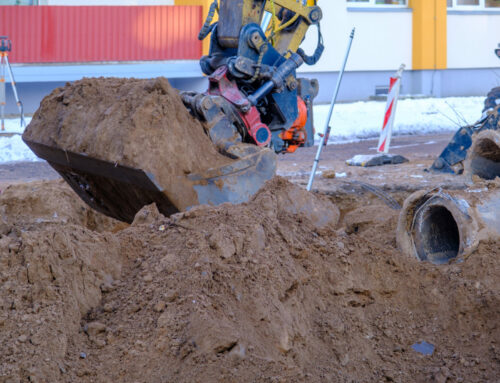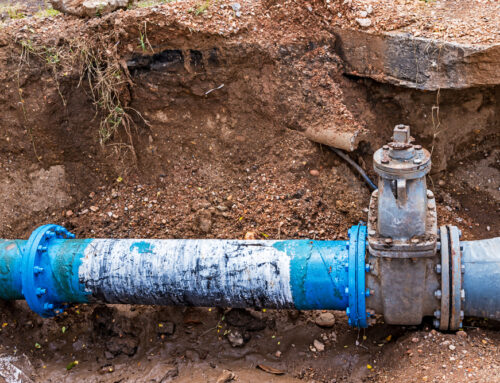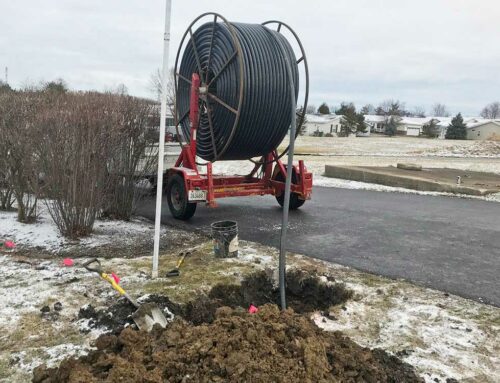For construction projects, site utility services play a vital role in supporting the infrastructure on the surface. These services are essential for the smooth functioning of any development project. From managing drainage systems to providing water supply, site utilities are fundamental to the success of a project.
Curious about the responsibilities involved in site utility management? Keep reading to discover the wide range of tasks that site utilities handle and why they are crucial for the success of construction projects.
What is Site Utility?
Site utility is the essential infrastructure that delivers water, gas, electricity, and telecommunication services to a construction site or property. This important system includes different parts like water mains, sanitary sewers, storm sewers, and drainage systems. Site utility installation involves the planning, designing, and executing of these essential systems to guarantee their proper operation and efficiency on a site.
Site utility work typically begins with a thorough analysis of the site’s needs and requirements. Engineers and contractors collaborate to develop a detailed plan that outlines the placement of utilities, taking into consideration factors such as soil composition, terrain, and local regulations. Once the plan is finalized, skilled technicians excavate trenches, lay pipes, and connect the utilities to the main supply sources.
Effective site utility management is essential for the successful operation of any construction project. Properly installed and maintained utilities ensure a safe and functional environment.
Site Utility Installation
To proceed with the installation of site utilities, engineers and contractors meticulously execute the planned placement of crucial infrastructure components to ensure the efficient delivery of services to the construction site or property. Each utility system is carefully laid out following detailed plans and specifications to guarantee proper functioning and longevity.
Site utility installation also encompasses the setup of lift stations for sewage and force mains for sanitary sewer systems. These components play a vital role in maintaining the flow of wastewater and ensuring that it reaches the appropriate treatment facilities without disruptions.
What is a Site Utility Contractor?
A site utility contractor efficiently manages the installation and maintenance of utility systems on construction sites. They play a crucial role in ensuring the flow of water, sewage, and stormwater for optimal site functionality. These contractors are responsible for the installation of various utility systems such as sanitary sewers, storm sewers, water mains, and drain tiles. They utilize their expertise to ensure that these systems are installed correctly, meeting all necessary regulations and standards.
Site utility contractors are equipped to handle the repair and maintenance of these systems, ensuring that any issues are promptly addressed to prevent disruptions to the construction process. They also offer sanitary sewer force mainline installation. This demonstrates their comprehensive capabilities in managing various utility needs on construction sites.
Site utility contractors serve as essential partners in the construction industry, providing the expertise and services needed to establish and maintain efficient utility systems that are fundamental.
Frequently Asked Questions
What Are the Common Challenges Faced During Site Utility Installation?
Common challenges during site utility installation include locating existing utilities, working around obstacles like trees or structures, managing excavation and backfilling, ensuring proper slope for drainage, coordinating with other contractors, and adhering to safety regulations.
How Does Weather Impact the Timeline of Site Utility Projects?
Weather can significantly impact site utility project timelines. Rain can delay excavation work, snow and freezing temperatures can hinder pipeline installations, and extreme heat can affect worker productivity. Proper planning and flexible scheduling are key.
What Are the Typical Maintenance Requirements for Site Utility Systems?
Typical maintenance requirements for site utility systems include regular inspection of sewer lines, force mains, storm sewers, water mains, drain tiles, and lift stations. Preventative measures such as cleaning, repair, and replacement help ensure the proper functioning and longevity of these essential systems.
How Does Site Utility Installation Impact Surrounding Infrastructure?
Site utility installation can significantly impact surrounding infrastructure by influencing drainage patterns, water quality, and system capacity. Proper installation is crucial for seamless integration with existing structures, ensuring long-term functionality and minimizing disruptions to the surrounding environment.
Are There Any Environmental Regulations That Site Utility Contractors Need to Adhere to During Installation and Maintenance Projects?
During installation and maintenance projects, site utility contractors must adhere to environmental regulations to protect ecosystems and public health. Compliance with laws governing waste disposal, erosion control, and water quality management is crucial to minimize environmental impact.
Site Utility Services
From managing drainage systems to ensuring water supply and proper disposal of sewage, site utilities are essential. The meticulous planning, installation, and maintenance of site utilities by skilled professionals contribute significantly to the success of construction projects.
Behm Enterprises offers a comprehensive range of services related to site utilities. Our expertise lies in overseeing the installation and maintenance of underground systems. Through the application of industry best practices and careful planning, our site utility services are instrumental in the success of various developments. Contact us today to learn more.




